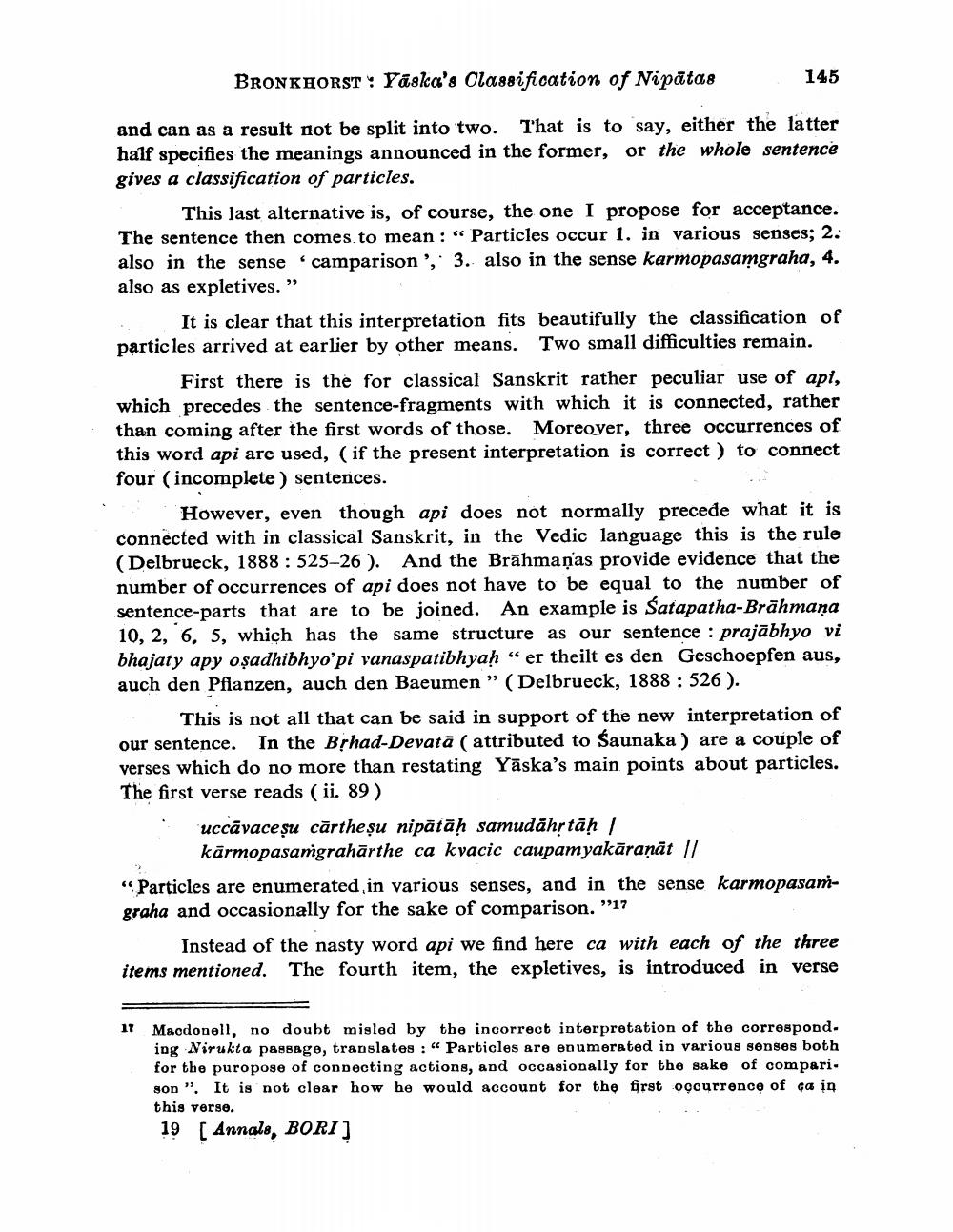________________
BRONKHORST : Yaska's Classification of Nipātas
145
and can as a result not be split into two. That is to say, either the latter half specifies the meanings announced in the former, or the whole sentence gives a classification of particles.
This last alternative is, of course, the one I propose for acceptance. The sentence then comes to mean : “ Particles occur 1. in various senses; 2. also in the sense camparison ', 3. also in the sense karmopasamgraha, 4. also as expletives.”
It is clear that this interpretation fits beautifully the classification of particles arrived at earlier by other means. Two small difficulties remain.
First there is the for classical Sanskrit rather peculiar use of api, which precedes the sentence-fragments with which it is connected, rather than coming after the first words of those. Moreover, three occurrences of this word api are used, (if the present interpretation is correct ) to connect four (incomplete ) sentences.
However, even though api does not normally precede what it is connected with in classical Sanskrit, in the Vedic language this is the rule (Delbrueck, 1888: 525–26). And the Brāhmaṇas provide evidence that the number of occurrences of api does not have to be equal to the number of sentence-parts that are to be joined. An example is Satapatha-Brāhmaṇa 10, 2, 6, 5, which has the same structure as our sentence : prajābhyo vi bhajaty apy oşadhibhyo'pi vanaspatibhyaḥ “er theilt es den Geschoepfen aus, auch den Pflanzen, auch den Baeumen ” (Delbrueck, 1888 : 526 ).
This is not all that can be said in support of the new interpretation of our sentence. In the Brhad-Devatā (attributed to Saunaka ) are a couple of verses which do no more than restating Yāska's main points about particles. The first verse reads ( ii. 89)
uccāvaceșu cārtheșu nipātāḥ samudāhrtāḥ /
kārmopasamgrahārthe ca kvacic caupamyakāraņāt // "Particles are enumerated in various senses, and in the sense karmopasamgraha and occasionally for the sake of comparison. "17
Instead of the nasty word api we find here ca with each of the three items mentioned. The fourth item, the expletives, is introduced in verse
27
Maodonell, no doubt misled by the incorrect interpretation of the correspond. ing Nirukta passage, translates : “ Particles are enumerated in various senses both for the puropose of connecting actions, and occasionally for the sake of compari. son". It is not clear how he would account for the first occurrence of ca in this verse. 19 [ Annals, BORI]




